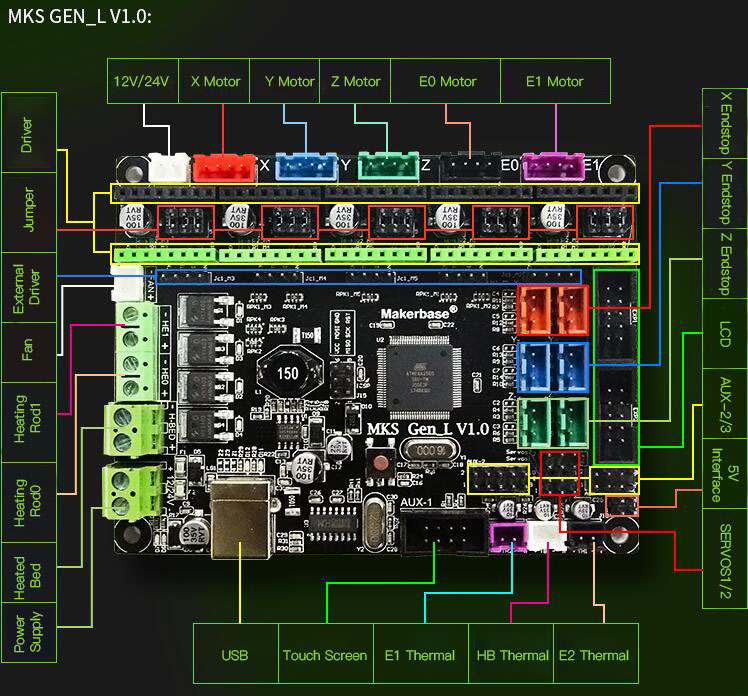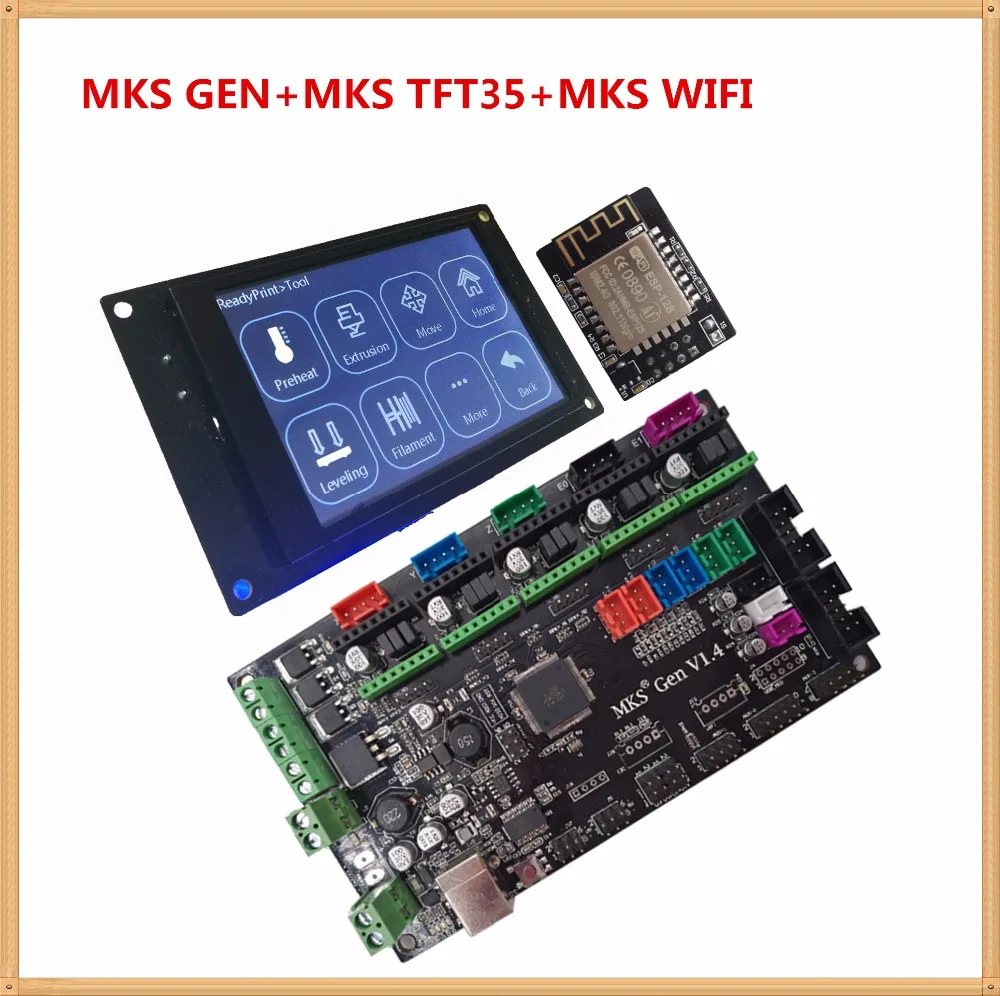

#Mks gen 1.4 dual axis drivers
You can skip the TMC drivers and use LV8729's (or S109, A4988, etc.) and not worry about this.A special USB cable with the V+ wire cut or modify the Mega2560. stepper drivers you should take steps to ensure +5V power from the USB port of the Mega2560 doesn't power up the stepper driver logic section without the stepper motor power supply present. The USB connector on the MKS Gen-L, etc.The main power connector on the MKS Gen-L (not the power connector for the heaters.).There are 2 ways power can be applied to these boards and one must take care if TMC stepper drivers are used (TMC2130, 5160, 2208, etc.) since they can NOT have logic/signal power present before the motor power supply comes up: The board should be powered from the motor supply the allowed input voltage range is 12VDC to 24VDC. get a good quality set of jumper wires with 0.1" pin/socket headers pre-installed (I use the SparkFun ones.) Quality is important, the cheap knockoff ones don't have heavy gauge wire nor can they even be soldered to (should you decide to.) They are called the MksGenL2, and MksGenL21 ( using OnStep release-4.24 or later.)

OnStep can use different PINMAP designs and support for these RAMPS compatible models is in Config.h file. You should read this entire page before starting the build. *** It's up to you to understand the design, connection, limitations, and use of this device and its components, I accept no responsibility.
#Mks gen 1.4 dual axis serial

While not recommended as the first choice when building a Mega2560 based OnStep, the RAMPS series boards and earlier MKS Gen-L V1 are still commonly used so there are the Wiki pages covering those here RAMPS 1.4, 1.5, 1.6 and here MKS Gen-L V1.Ī better choice is the MKS Gen-L V2.0 or v2.1, these boards are an integrated Arduino Mega2560 + Ramps1.4 on a low cost single board that has the important advantage of 24V support, not needing an RTC added to improve its tracking accuracy, and support for plugging in SPI configurable stepper drivers for micro-step mode switching support with minimal hassle.


 0 kommentar(er)
0 kommentar(er)
